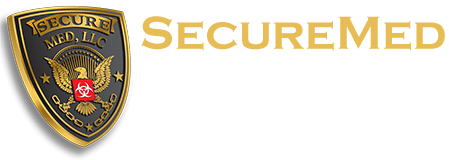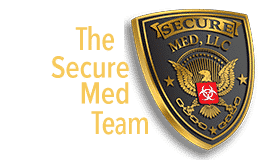Health Care Waste Management: How to Protect Patient PHI
What’s the big deal?
Identity theft is on the rise and so is the fraudulent use and sale of Protected Health Information (PHI). Stolen PHI can lead to identity theft that can leave your patients with years of legal, financial and health struggles. Thieves are looking for names, social security numbers, credit card numbers, financial account information, health information, insurance coverage information, etc. Health care waste management plays a huge role in protecting valuable patient information. The more PHI a scammer can obtain about one person, the more valuable the information becomes.
According to the Coalition Against Insurance Fraud, scammers can use this information in several ways, including:
- Insurance Claims – Medical identity thieves can bill health insurance providers for fake or inflated treatment claims. Often, these types of thieves have worked in the medical field and have knowledge of how insurance billing works. On a more organized level, stolen patient information can be bought on the black market then fake clinics can be set up to make bogus claims against health policies of their victims.
- Use and Sale of Prescription Drugs – PHI can be used to obtain prescriptions for drugs to sell or use. Some thieves are looking to make money; others want the drugs for personal use.
- Free Treatment – Medical identity theft can also occur because the thief does not have their own health insurance coverage, so they assume the identity of another person to receive free medical treatment at a hospital or clinic. The bill goes to the insurance company of the victim and the thief receives free medical care.
The effect of poor health care waste management can run far and deep when someone’s identity is stolen. Secure health care waste management is necessary to protect your clients from the effects of medical identity theft. A few examples of the types of serious damage that can be done include:
- Destroyed Credit – A thief can accumulate large hospital bills in the victim’s name and then disappear. This can affect the victim’s credit, even if a credit card wasn’t used. Fixing mistakes on a credit report can take months to years of time-consuming work, during all of which the victim may not qualify for loans, mortgages, or jobs and may be forced to pay higher interest rates.
- Loss of Health Coverage – If a scammer maxes out a health insurance policy, the victim could be left with no coverage in the event of a medical emergency, surgery or expensive treatment.
- Inaccurate Health Records – This serious effect of medical identity theft can be a threat to a victim’s health or, in extreme cases, even their life. If an identity thief has received medical treatment under a false name, those records could end up on a victim’s medical records. Examples of potentially harmful wrong information include: blood type, prescribed medication to which they are allergic, false diagnoses, and more. A victim could be treated based on a thief’s medical history causing unlimited potential for harm.
If your medical practice is responsible for the mishandling of PHI due to poor health care waste management, the results can be devastating. Not only are there legal and financial repercussions, a data breach could leave a long-lasting blemish on the reputation of your medical practice. The ramifications of this could be devastating.
What can I do?
- Have a Health Care Waste Management Policy in place. The policy and procedures for health care waste management should be clear and thorough. They should be reviewed, evaluated and tested regularly to ensure effectiveness. Be sure they are compliant with HIPAA and other applicable laws and regulations.
- Promote awareness and provide staff training. Be sure your staff knows how to handle Protected Health Information and the procedures for proper disposal. Staff should be trained on the Health Care Waste Management Policy and how their actions can impact patient safety.
- Implement a Shred-All Policy. Other than documents that are required to be kept and maintained for a certain length of time, any memos, notes, print outs, etc. that would normally be discarded should instead be put in a secure shredding container. Secure Med provides resources on how often to shred, how to determine what must be shredded and how to implement a document destruction policy.
Contact Secure Med today for a quick, free quote for document destruction services. We guarantee you complete peace of mind knowing that your patients’ PHI is safe and secure throughout the entire process until it is completely destroyed. Eliminate the risk of a poor health care waste management plan by calling Secure Med today!
Birmingham: (205) 453-1468 or Huntsville: (256) 534-5130.







